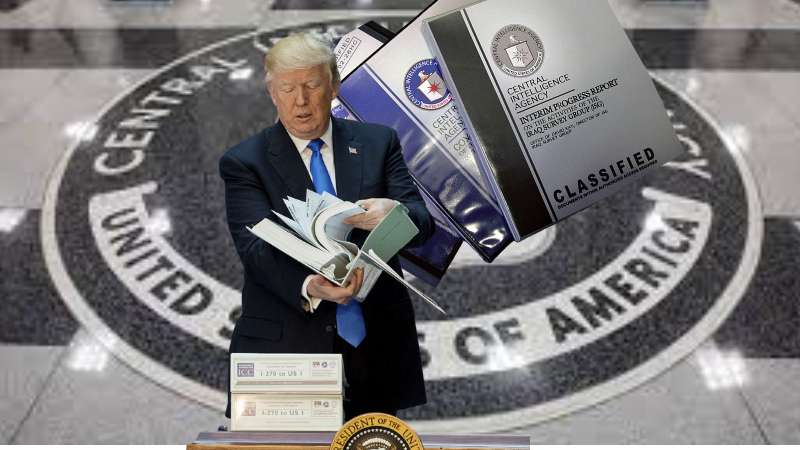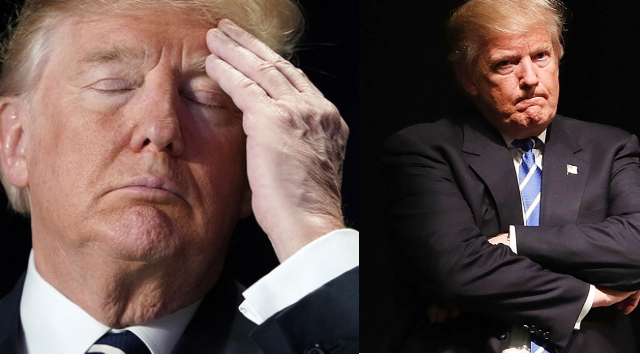The Colorado Supreme Court voted 4-3 to remove former President Donald Trump from presidential primary ballots, citing Section 3 of the 14th Amendment to the U.S. Constitution. This section prohibits individuals who have “engaged in insurrection” from holding office. The court ruled that Trump’s actions in attempting to overturn the 2020 presidential election amounted to engaging in an insurrection, making him ineligible for the presidency.
Despite the ruling, the court opted to stay its decision until January 4, allowing Trump’s legal team time to appeal to the U.S. Supreme Court. The case, brought by CREW on behalf of Colorado voters, centers on whether Section 3 applies to the presidency. While a lower court judge had acknowledged Trump’s involvement in an insurrection, the interpretation of Section 3 remained unclear. The Colorado Supreme Court’s decision has broader implications, as other state courts also grapple with 14th Amendment challenges to Trump’s inclusion on ballots.
Significance and Potential Impact of Colorado Supreme Court Ruling
The ultimate resolution rests with the U.S. Supreme Court, which will decide whether Trump can pursue the presidency again after his involvement in the events leading up to the January 6, 2021, Capitol riot. The ruling, applicable only within Colorado, could have nationwide consequences if upheld. The state court’s decision is paused until January 4, just one day before Colorado Secretary of State Jena Griswold is set to certify candidates for the March 5 primary. Trump‘s expected appeal to the Supreme Court sets the stage for a high-stakes legal battle with far-reaching consequences.
Legal Challenges Under 14th Amendment Across States
The Colorado Supreme Court‘s decision is part of a broader legal landscape where other state courts are also grappling with challenges to Trump‘s inclusion on ballots under the 14th Amendment. While the ruling has implications for Colorado, it raises the question of whether similar challenges will arise in other states. The legal debate revolves around the interpretation of Section 3 and its applicability to presidential candidates.

As the legal battles unfold, the case in Colorado serves as a potential precedent for other states considering whether to block Trump from appearing on their ballots. The diversity of interpretations across state courts underscores the complexity of constitutional issues surrounding Trump’s eligibility, emphasizing the need for a unified decision by the U.S. Supreme Court.
Key Takeaways:
- The legal challenges extend beyond Colorado, with other states facing similar debates over Trump‘s eligibility.
- The diversity in court interpretations highlights the need for a cohesive resolution at the federal level.
Timeline and Implications for 2024 Election
The Colorado Supreme Court‘s decision to stay its ruling until January 4 sets the stage for a critical timeline leading up to the state’s primary on March 5. The timing aligns with the deadline for Colorado Secretary of State Jena Griswold to certify candidates, injecting a sense of urgency into the legal proceedings. If the U.S. Supreme Court affirms the Colorado decision, Trump‘s name could be removed from ballots nationwide, reshaping the landscape for the 2024 presidential election.
What to Watch For Following Colorado Supreme Court:
- The timeline leading to the January 4 appeal deadline and its implications for the March 5 primary.
- The potential nationwide impact if the U.S. Supreme Court upholds the Colorado decision.
Trump’s Legal Team and Strategy
Trump’s legal team faces a critical juncture as they prepare to appeal the Colorado Supreme Court’s decision to the U.S. Supreme Court. Their argument will likely center on the interpretation of Section 3 of the 14th Amendment and whether it applies to presidential candidates. The outcome of this appeal could shape the trajectory of Trump‘s political future, influencing his potential candidacy in the 2024 presidential election.

Legal Strategies in Focus:
- The emphasis on constitutional interpretation and the relevance of Section 3 to presidential candidacy.
- The potential precedents set by the legal arguments presented by Trump’s legal team.
Ongoing Legal Battles: Carroll Defamation Suit and Giuliani Lawsuit
While the focus remains on Trump‘s eligibility for the 2024 election, other legal battles involving key figures continue to unfold. The attempt to block Northwestern University professor Ashlee Humphreys from testifying in a defamation lawsuit brought by columnist E. Jean Carroll adds complexity to Trump’s legal challenges. Additionally, the filing of another lawsuit by Georgia election workers Ruby Freeman and Wandrea “Shaye” Moss against former Trump lawyer Rudy Giuliani underscores the continued legal scrutiny surrounding Trump and his associates.
Broader Legal Context:
- The interplay between multiple legal battles and their potential impact on Trump‘s political standing.
- The continued legal challenges highlighting the complex web of litigation surrounding Trump and his associates.
In conclusion, the legal landscape surrounding Donald Trump‘s political future is dynamic with the Colorado Supreme Court‘s decision marking a significant development. As the legal battles unfold, the nation awaits the U.S. Supreme Court’s verdict, which could have far-reaching implications for the 2024 presidential election and beyond.
Table of Contents
Discover more from OGM News NG
Subscribe to get the latest posts sent to your email.














